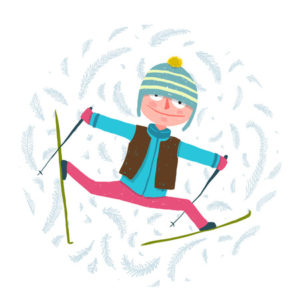Winter Weather and Sports Hernia Prevention

Winter: depending on where you’re from, it can be the season of snow and sledding, or just sun and festive holiday spirit. But no matter what weather your winter brings, it also brings with it an increased risk for injury. During the colder months, we tend to stay inside longer and exercise less. Decreased activity puts you at risk for sustaining an injury during even normal activities.
A sports hernia is one type of those hidden injuries. A sports hernia injury happens when there is a tear in the abdominal muscles, usually caused by a sudden change in direction or twisting movement. They can happen in all sorts of situations and all types of activities, including running, swimming even heavy lifting. In the winter, skiers and snowboarders may be at an increased risk.
To ensure that your winter goes smoothly, make sure to be cautious in slippery situations. Ice and snow can create uneven, slick surfaces, and taking a fall might push your muscles to tear. Lifting heavy objects, even holiday presents, should be done with care to not strain or overwork muscles, especially those in the abdomen and groin area. When in doubt, it’s best to take it slow and steady to avoid injuring yourself.
Recognizing the warning signs of a sports hernia is critical to knowing when to seek help. Sports hernia injuries are often characterized by a sharp pain in the lower groin area, especially pain that returns no matter how much you rest. There may be a visible bulge in the area, although it is more common in men. If you think you may have suffered a sports hernia, it’s important to seek out a physician with the specialized knowledge necessary to diagnose and develop the best treatment plan for you.
Dr. William Brown and his team have years of experience treating sports hernia injuries in athletes from all over and of all skill levels. While his office may be in the sunny San Francisco Bay Area, his patients come from all over the country. Dr. Brown has expertise in treating sports hernias from all sorts of situations, from professional hockey run-ins to slips on the ice.
This winter, focus on preventing sports hernia injuries. Take your time, be careful, and know your own limits.
